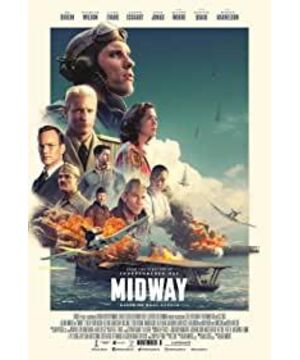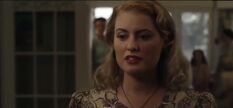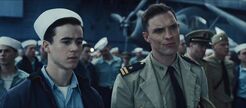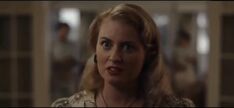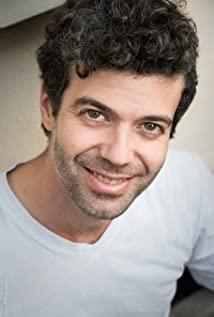The description angle of recent war films is different from that of decades ago. Decades ago, it was like a textbook, telling the story of the war. Simply put: the characters serve the event (it may also be that I have limited exposure), but I have watched a few war films recently. Neither of them focus on large-scale war scenes, but they focus on describing characters, which makes it a little difficult for audiences like me who have completely forgotten the history they have read and embraced watching a movie as a crash course in history.
In addition, there are too many characters in this film, and I can't recognize people at all, which greatly affects the understanding of the film, and I want to express everything. For example, at the beginning, Japanese politicians and military personnel talked with American soldiers, thinking that the focus was on them, but it turned out to be an explanation of the background; another example was when the Japanese army attacked the fleet, an officer was very heroic, commanding the crew to escape and attacking the low-flying Japanese fighter jets. The ship's guns covered the crew, thinking he was the protagonist, but he was burnt to ashes. Another example is that the plane went out of control or something. A mechanical engineer jumped on the plane with half of the fuselage outside the ship and was crazy about the other plane. In the end, the plane didn't fall on the ship, and he was also received and praised by the captain. He thought he was the protagonist, but it turned out to be just a passerby. The submarine attacked not according to the cards, but missed, and was counterattacked by the Japanese warship. What is the function or meaning?
With so many fragmentary clips, the only one that is definitely not the protagonist is the Intelligence Department. Although the proportion is large and eye-catching, because the title of the play is "Battle of Midway", there is no hint of a spy war. I really like the metaphor of the wedding to convince my superiors that Midway is the target, but when he got home, his wife took off his glasses and forced him to rest. Don't hold back, right? And his wife seems to have access to secrets (by looking at the kind) and feels that the intelligence department is very unreliable
In addition, there is one thing I don't understand. The officer's evaluation of the brother (probably Layton) who later injured his lung was that he might die every time he was dispatched, and Layton didn't care at all, neither caring that he had a chance to die, I don't care if others die. This kind of person is not suitable to be a captain (or a boss?), so there is no chance for promotion if he performs well. Later, because of the large number of wounded, the boss Jian went off the beaten path and was promoted. But following him, he kept facing the death of his teammates. He seemed to have learned the meaning of "every attack may be the last time." But when he turned around, he used his fighting methods to make contributions, and he also called the application and the way the movie landed at the beginning of the film. landing. What do you want to express? And what does the boy he wanted to protect but couldn't protect have anything to do with him? When the boy talked to him, he thought the other party's parents were his fans, but the boy said that his father despised the officers, but after the boy died, he said that he could not protect the boy by going to his mother, it was very psychedelic, and maybe I didn't recognize anyone , messed up and led to psychedelics
The best overall performance is the Japanese side. Even if I can't tell who is from whom, there are not many things I want to express - main war faction, non main war faction, political assassination, allegiance to the emperor, suicide attack, martyrdom, etc., so it is not messy.
It is worth commending that the actors were selected according to the race of the war and the rights of men and women at the time. There was no politically correct but unreasonable situation such as other non-participating races becoming soldiers or female officers suddenly appearing, which is very comfortable to watch.
The most impressive but psychedelic but in line with the truth of the year is that after the U.S. fighter plane was shot down, the Japanese officer lamented that the American fighter plane was behind
View more about Midway reviews


